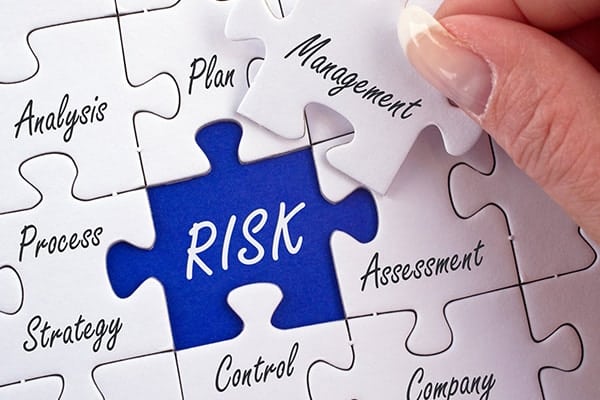
How to keep liability claims to a minimum and minimise the risk to your small business
Posted on 14th September 2021 by Phil Ainley

Liability claims have been steadily rising throughout the 2000’s. As a small business you are at risk of a liability claim, and if you do not have the correct business insurance policy in place at the time of a claim being made you could run the risk of potential financial difficulties.
Business insurance exists for good reason. It could be a public liability claim for an accident on your premises, or a claim by an employee against your employers’ liability insurance or an accident., or even a potential claim for alleged negligent services against you for which you would need professional indemnity cover. Regardless of the claim type, carrying a comprehensive business insurance policy can cover these potential concerns and the costs incurred in defending a claim to help ensure your business is protected.
What is the impact of rising insurance claims?
The frequency and severity of insurance claims becomes the catalyst for any rise in insurance premiums. When insurers receive a surge of claims, it directly affects the amount you, the consumer, pay for your insurance protection.
In the 1990’s, there was an increase in claims due to the rise in the claim culture mindset. Insurance scams became more prevalent, especially when it came to motor insurance and claims of whiplash from accidents.
According to data* published by the Compensation Recovery Unit (CRU), claims settled in the last 10 years peaked in 2013/14 (1,049,017 claims settled) and while claims have halved since then (542,457 claims settled in 2022/23), the average settlement value in the same period has risen by 46.5% (1).
(*Claims data covers six categories: clinical negligence, employer, motor, other, public liability, and other where the liability is unknown)
Unfortunately, increasing insurance claims affects everyone. As an example, an insurer may charge £1,000 for motor insurance, but claims settlements, on the basis of an accident, can cost thousands in compensation. As such, the more claims that are received the more an insurer is likely to charge for cover. If for no other reason, the insurance premiums are increased to ensure the insurer has enough cash reserves to cover the volume of claims being received and settled.
In more recent times, the rise in inflation has seen the cost of rectifying an issue as part of a claim rise. In the motor industry, the rising costs of labour and vehicle parts has meant that claims values have risen. A situation like this will inevitably mean that the insurance premiums must rise to meet the increased costs.
The following alphabetical list highlights some of the most common liability claims against businesses:
- Burglary and theft – Burglary is said to be one of the most common causes of claims. It can occur at your property, while you are working on-site for a job or while you are in transit. Caunce O’Hara’s business combined insurance policy offers cover for commercial property and for portable equipment.
- Customer injury and/or property damage – If a customer or client has an accident on your premises, this can give rise to a claim against your business. The same can be said if you are, for example, a freelance contractor who works on-site at client premises and you accidentally damage your client’s property. That could be a drink spillage onto technology equipment or might have accidentally bumped into something and damaged it. Carrying Public Liability insurance will protect you in the event of this type of claim.
- Employee injury and/or illness – Employers are responsible for the health and safety of their employees while they are at work. Your employees may be injured or suffer disease whilst in your employment or your former employees may contract a disease such as Noise Induced Hearing Loss as a result of work they undertook while in your employment. Employers’ Liability insurance will cover the cost of defending a claim against you from an employee who has suffered and injury or illness as a result of the work they do for you.
- Fire damage – Fire damage can happen at any time and in any industry. Obviously some industries are at higher risk than others but either way to protect your business you will need a comprehensive commercial property insurance policy in place. If the fire has put your business temporarily out of action, you will likely need a business income insurance policy in place to be able to claim for any lost income.
- Product liability – These claims are relation injury or illness caused by a faulty product where your business is held liable. Manufacturing, retail and distribution industries are particularly prone to these claims. Contact your insurance broker about Product Liability insurance to ensure your business is covered.
- Reputational damage – Reputational damage refers to an incident where your business causes another business to lose face, or where a negative incident affects the reputation of your own business. These types of claims can be the most costly, especially in high profile cases. Professional indemnity insurance will respond to cover you in the event of a claim against you for damage to someone’s reputation.
- Slips, trips and falls – Claims from slips, trips and falls from customers are common and can arise from inadequate housekeeping by the business itself, such as exposed cables, upturned carpet, damaged steps etc. If a customer has an accident on your premises they could be entitled to thousands of pounds in compensation depending on the severity of their injuries. Carrying a good level of Public Liability insurance is vital as you deal with customers face-to-face but good housekeeping is also essential to reduce the chance of claims arising in the first place.
- Struck by an object – Claims arising from being ‘struck by an object’ typically refer to workplace incidents, such as an employee being hit by machinery or by falling products. Cases can range from bruising to the worst-case scenario, fatality. Either way they need to be taken seriously. As a result of this, Employers’ Liability insurance is a legal requirement for all employers to ensure staff are protected in the event of these types of accidents.
- Water damage and/or freezing damage – Some business are more at risk than others, including those in old buildings and warehouses where the pipes are exposed to the elements. To make a claim for water or freezing damage you will need to carry a commercial property insurance policy and ensure that it covers this type of claim.
These are just some of the common types of business risks but they can be mitigated with a robust risk management plan.
How risk management can help protect your business
- Risk planning enables a business to identify risks early and reduce them or even eradicate them completely.
- Risk management helps to protect a company’s resources.
- Risk management helps to protect a company’s staff.
- Risk planning is financially shrewd as it can help to reduce insurance premiums and reassure lenders when applying for extended credit and business loans.
- Ultimately, risk planning helps businesses to prepare for the unexpected, ensuring that all relevant company information and the process of disaster recovery is already in place, making any insurance claims a lot smoother.
Sources:
- https://www.gov.uk/government/publications/compensation-recovery-unit-performance-data/compensation-recovery-unit-performance-data#number-of-cases-registered-to-cru
- https://www.caunceohara.co.uk/products/
- https://www.caunceohara.co.uk/employers-liability-insurance/
- https://www.caunceohara.co.uk/public-liability-insurance/
- ashburnham-insurance.co.uk/blog
- https://www.markeluk.com/articles/top-10-ways-to-minimise-risk
Related Articles:
Why every business needs comprehensive business insurance
How can risk management help companies?
Useful Links

Professional Indemnity Insurance
Protects against claims of alleged negligence in your professional services, advice and designs.

Public Liability Insurance
Protects against claims of injury to third-parties or damage to a third-party's property.

Employers' Liability Insurance
A legal requirement for anyone employing staff. Protects your business in-case an employee is injured at work.

Directors and Officers Insurance
Protects your assets in the event of a claim. You may be held personally responsible for your business action and will have unlimited personal liability.
